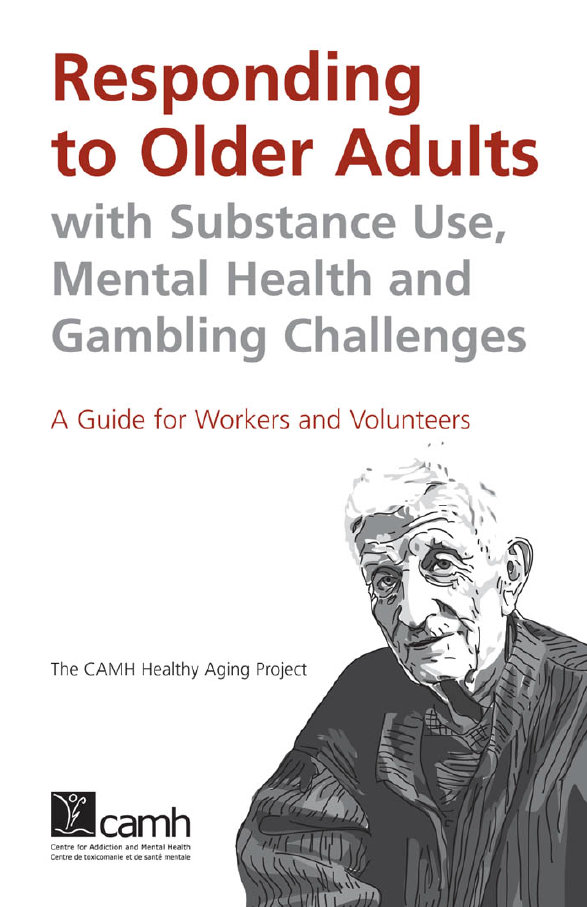 This booklet is for people who work with older adults in their homes, in the community and in long-term care. This includes personal support workers, health care aides, meals-on-wheels and friendly visitor volunteers, and staff at seniors’ centres, residences, apartments and nursing homes. This booklet is also for people who supervise or educate first contact staff. Some readers may have more or less training and experience than others, but all work in close contact with older people.
This booklet is for people who work with older adults in their homes, in the community and in long-term care. This includes personal support workers, health care aides, meals-on-wheels and friendly visitor volunteers, and staff at seniors’ centres, residences, apartments and nursing homes. This booklet is also for people who supervise or educate first contact staff. Some readers may have more or less training and experience than others, but all work in close contact with older people.
Why have we written this booklet for you?
The work you do as a worker or volunteer is important. The services you provide and the attention you give to older adults are essential to their care, their dignity and their quality of life. The work you do also helps to support the families of older adults, who may not be able to provide care themselves. This booklet was written in recognition of some of the challenges you face in your important work, and to offer information that may help you to better understand and feel more comfortable with certain older adults. It can be hard to know what to say or do when you see older adults who behave in ways that make you think they may have a substance use, mental health or gambling problem. You may not be sure what to look for, how to talk to the person about it or what you can do. Since you work in close personal contact with older adults, you may be the first to notice a problem. If the problem is mild, you may be able to help the older adult yourself. When it is more severe, you may need to tell others who can help. As the first contact, you can make a difference. Your approach can influence how older adults feel about themselves, about their difficulties and about you and others. How you respond to older adults can help to build trust. This can make it easier for them to accept help from you or from others, such as doctors or social workers. There is much to know about substance use, mental health and gambling issues that affect older adults. This booklet won’t make you an expert, but it will give you a lot of important practical information that can help you in your work.
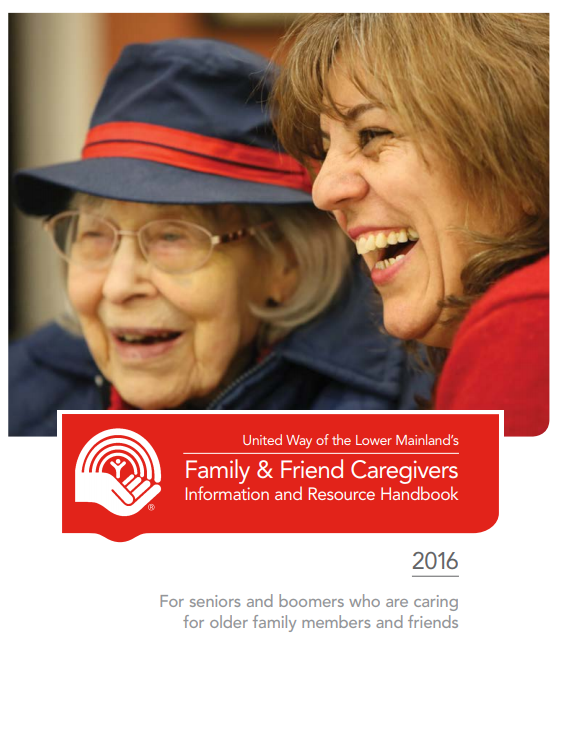
1. Talk with the people you care for about planning ahead and their wishes for their ''old age'' - Please don't wait until a crisis occurs
2. Caregiving =- Don't try this alone! (Family Caregiver Alliance motto)
3. Practice self-care
Source: United Way of the Lower Mainland
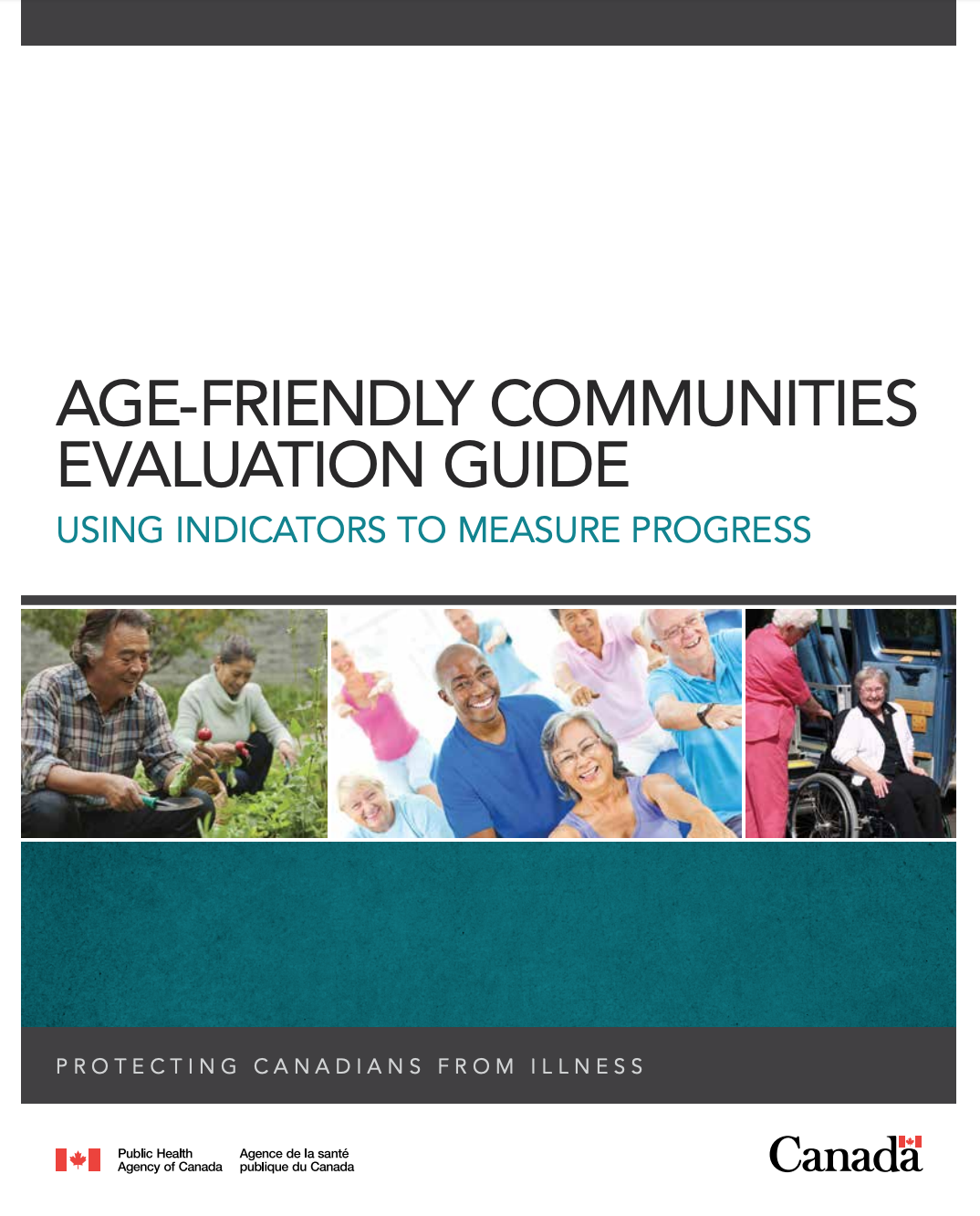 "The Public Health Agency of Canada has prepared the Age-Friendly Communities Evaluation Guide to provide communities with practical information on how to use indicators to measure progress and evaluate their age-friendly initiatives. Age-friendly communities are those communities that are taking steps to help their older residents remain healthy, active and independent, and to continue to make important contributions as they age.
"The Public Health Agency of Canada has prepared the Age-Friendly Communities Evaluation Guide to provide communities with practical information on how to use indicators to measure progress and evaluate their age-friendly initiatives. Age-friendly communities are those communities that are taking steps to help their older residents remain healthy, active and independent, and to continue to make important contributions as they age.
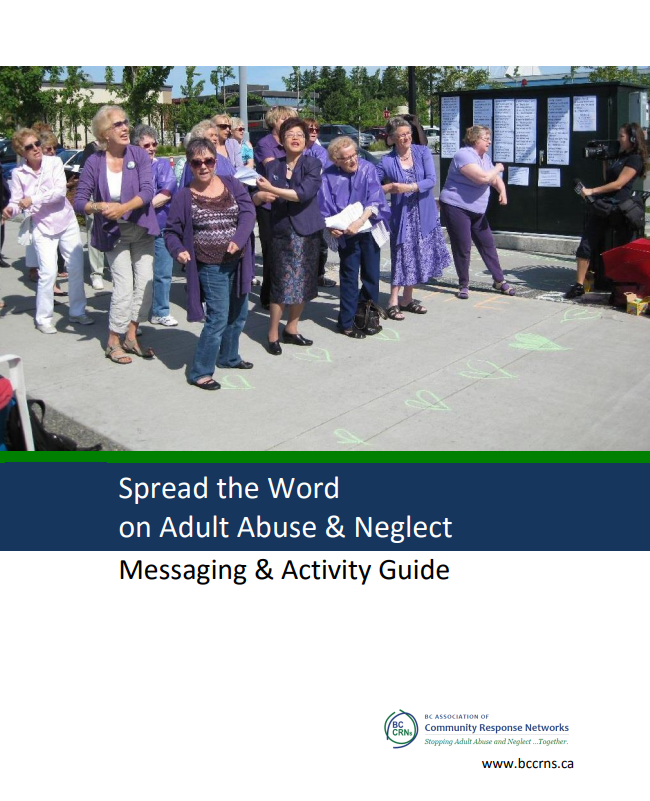
To help coordinate consistent messaging across the CRNs in BC during major provincial/national events on adult abuse and neglect throughout the calendar year.
How to use this guide:
Use this guide as your starting point for:
- Content. (No need to write anything from scratch!)
- Activities to compliment or refresh your community level efforts.
- For those on social media, or thinking about starting a social media presence, use the sample posts in this guide to keep your social media content fresh throughout the year, and aligned to other CRNs. Copy and paste as much or as little as you choose.
This guide contains samples of:
- Awareness building activities.
- Media releases.
- Posts for social media (e.g. Twitter, Facebook).
Note: Link your activities to your CRN’s mandate, and the intent of the event or campaign you choose to participate in.
Who is this guide is for:
CRN Coordinators. Regional Mentors''
Source: BC Association of Community Response Networks (BCCRN)
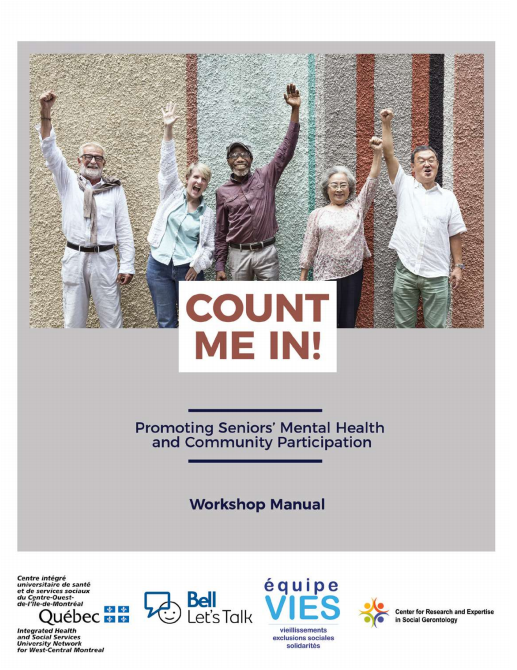
''Count Me In! is a multifactorial program that promotes the community participation of seniors experiencing psychosocial difficulties, with or without mental illness. The specific objective of the program is to encourage them to participate in resources that offer stimulating activities and opportunities for social interaction.''
Source: Centre for Research and Expertise in Social Gerontology of the CIUSSS West-Central Montreal
Page 18 of 31

















